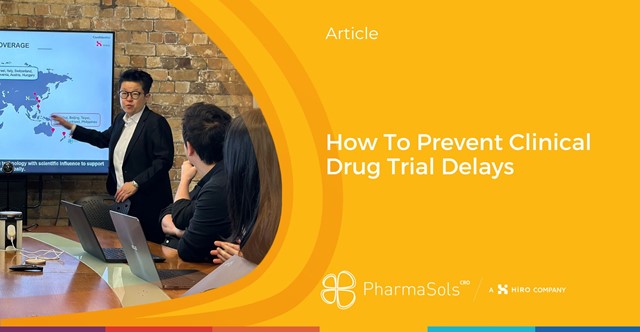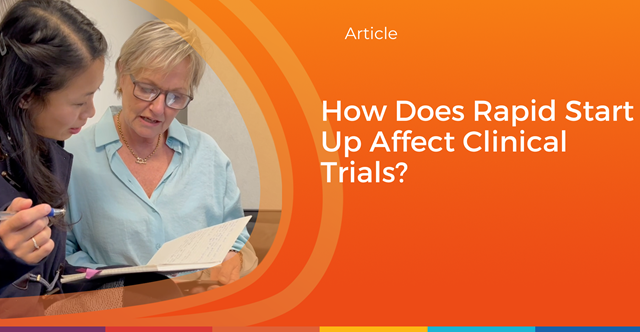08 Feb
The Go-to region for clinical trials

The ANZ region has become the go-to region for biotechs to conduct their clinical trials. That’s not surprising as the region generates high-quality clinical data while being time and cost-effective.
There are several unique advantages that make this region the first choice for many biotechs.
The ANZ region is home to some of the world’s best researchers, health professionals, and high-quality research units generating quality data that is accepted by the FDA and the EMA. The region's research network is experienced in a wide range of therapeutic areas and trial phases. Both countries' governments support clinical research initiatives and actively encourage the conduct of clinical trials.
The streamlined regulatory environments in both Australia and New Zealand enable rapid study start-ups. The significantly diverse ANZ population and healthcare environment provide an ethnically diverse and willing patient cohort to improve patient recruitment and retention. Clinical trial costs are lower by up to 60% due to faster trial timelines and the Australian R&D Tax rebate.
Rapid Study Start-up
The ANZ region has a regulatory environment that enables start-ups quicker than anywhere else in the world.
Australia and New Zealand offer a simplified route for biotechs to move quickly through the study start-up phase with their streamlined regulatory and ethics processes. These streamlined frameworks make it easier to navigate any necessary approvals, allowing the study to start quicker than any other countries.
Compared to the US, up to a year can be shaved off the regulatory timeline in ANZ, as there is no requirement for an IND application to conduct clinical trials. Furthermore, full GMP material is not mandated for Phase I clinical trials in Australia and New Zealand.
By leveraging the region’s streamlined processes, sponsors running clinical trials in ANZ will get the first patient enrolled faster than they would have anywhere else in the world. PharmaSols’ dedicated in-house start-up team was able to swiftly achieve a 35-day study start-up.
High-Quality Data accepted by the FDA and EMA
Clinical trials conducted in Australia and New Zealand generate high-quality data.
This high-quality data generated from clinical trials conducted in the ANZ region can be widely accepted by all major international regulatory bodies, such as the FDA and the EMA, as part of regulatory applications. Sponsors can use the clinical data generated in this region to support their later phase trials worldwide.
PharmaSols firmly believes in ‘Quality Without Compromise’. We want to ensure we are always ready to support our clients in collecting quality data from their clinical trials, and this starts by upholding quality within our firm.
Cost-Effective solutions
PhRMA* recently estimated the average cost of a successful drug trial in the US to be between $600,000 and $8 million per day, up to $2.6 billion. Running a trial in Australia and New Zealand can be up to 60% cheaper than in the U.S., which is particularly beneficial for small to medium sized biotechs that have limited resources and funding.
The Australian Government offers an R&D rebate of 43.5% of clinical costs, significantly reducing the costs involved. It comes back as part of a cash rebate to eligible sponsors and for R&D costs that fit the criteria to be able to claim the rebate.
In addition to the streamlined ethics and regulatory processes, costs associated with these submissions are relatively low compared with many other regions, such as the US and Europe.
Proven Patient Recruitment and Retention
Patient recruitment and retention are critical for any clinical trial success.
It is widely accepted that almost half of all delays in clinical trials are a result of problems with patient recruitment and retention. The ANZ populations are uniquely diverse, making the region the ideal choice for many sponsors.
Trial statistics from ANZCTR show that between 2015 and 2020, patient recruitment exceeded expectations, resulting in 103% retention of patients. This has been a combination of efforts put in by the Australian and New Zealand Governments and a highly informed, willing, and ethnically diverse patient population spread across the region.
Another incentive for the New Zealand population to enrol into clinical trials is access to the world-class and most innovative treatments available in the world. New Zealand, across multiple therapeutic classes, such as oncology, is a late adopter of some global standard-of-care options. This acts as an incentive for key opinion leaders to recommend, and patients to enrol on any clinical trials which may cater to their needs.
Our industry relationships and established site networks help us deliver, and even overachieve, our patient recruitment and retention targets – enabling the generation of quality data. A recent example of PharmaSols’ ability to recruit effectively – we achieved final recruitment of 204% of the initial target in only 26 days.
PharmaSols
PharmaSols is uniquely positioned in Australia and New Zealand, one of the world’s most trusted and rapidly growing clinical trial regions. With over 20 years of experience in this region, PharmaSols provides sponsors with rapid, cost-effective and high-quality clinical trial solutions.
In addition to this, PharmaSols takes a creative problem-solving approach, has a trusted network of experts, and maintains a people-driven attitude, so you can be confident that your trial will remain on track and meet its targets.
Other News
March 2024 (1)
February 2024 (1)
December 2023 (1)
November 2023 (1)
October 2023 (1)
September 2023 (2)
August 2023 (1)
July 2023 (1)
June 2023 (2)
May 2023 (3)
April 2023 (1)
March 2023 (2)
The Go-to region for clinical trials (1)
HiRO – our global advantage, tailored solutions and key partnerships (1) (1)
HiRO – an emerging full-service global CRO (1)
HiRO – Top CRO in APAC 2022 (1) (1)
November 2022 (1)
October 2022 (1)
September 2022 (1)
August 2022 (1)
July 2022 (1)
June 2022 (1)
May 2022 (1)
April 2022 (1)
March 2022 (1)
January 2022 (1)
December 2021 (1)
November 2021 (1)
October 2021 (2)
September 2021 (2)
August 2021 (3)
July 2021 (3)
June 2021 (2)
May 2021 (1)
April 2021 (2)
March 2021 (1)
February 2021 (1)
December 2020 (5)
November 2020 (1)
October 2020 (5)
September 2020 (1)
August 2020 (2)
May 2020 (5)
January 2024 (0)



